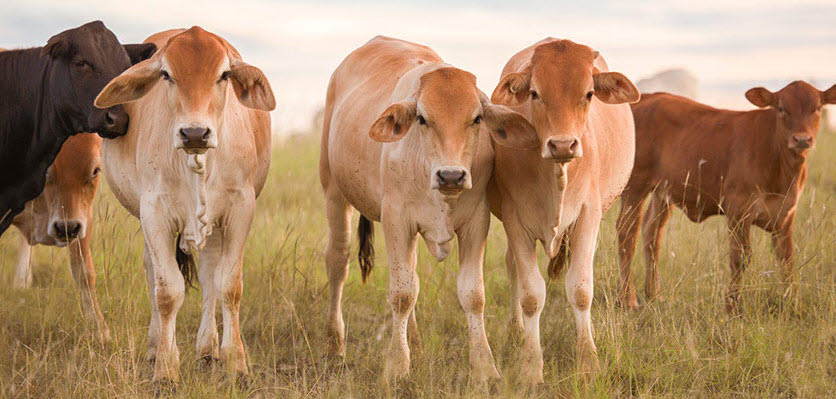Cattle bloating

What is cattle bloat?
Bloat refers to a condition that affects cattle when they graze and rapidly over-eat fresh lush legume pastures - usually clover and Lucerne. Bloat can also occur with cattle receiving intensive grain ration feeding, such as in feedlots or in times of drought feeding. The rapid consumption of the pasture or grain and its subsequent fermentation in the gut, causes an increase in gas pressure in the rumen – the first part of the stomach of cattle.
Cattle normally belch or burp to get rid of excess gas from their gut, however with bloat the build-up of gas in the gut occurs too quickly, and the gas is often trapped in the form of a foam or froth in the gut. The cattle are unable to belch up the gas normally, and the increasing pressure of the gas causes intense pain and also impacts the animal’s cardiovascular system – often resulting in a rapid death.
What are the signs of bloat?
The signs of bloat that you may notice with cattle include that they may have stopped grazing and be reluctant to move. The abdomen on the left side of the animal becomes distended, and they may appear agitated or distressed with frequent vocalising, and bulging eyes. As the condition progresses, cattle may show signs of straining to urinate and defecate, and their breathing often becomes rapid.
As the effects of bloat develop, cattle can collapse and go down. When this occurs, the swollen rumen puts pressure on the lungs, restricting blood flow and affecting breathing –which can then be fatal. It seems that younger cattle are more susceptible to bloat than older animals, perhaps relating to whether cattle get used to eating bloating pastures and are less susceptible after exposure.
Bloat management
If you notice any of your cattle displaying signs of bloat, contact your veterinarian for advice and attention. Depending on the extent of the bloating and accompanying signs, there are various treatment, management and prevention options available. In early cases, anti-bloat preparations can be administered, or the animal may be stomach-tubed. It is usually beneficial to encourage the animal to keep moving around during this time.
In more severe or advanced cases of bloat, veterinary treatment is required to relieve the gas build up and administer the anti-bloat preparations. Your veterinarian can also provide additional advice around prevention of bloat in cattle specific to your farm or feedlot.
Prevention often includes various aspects of pasture management – including looking at the types of pasture being grown, and managing how the cattle access the pasture or other feeds at different times of the year and in different weather conditions. Your veterinarian can also provide advice specific to your cattle around the use of various different types of anti-bloat medication.
For more information, check out the following articles:
